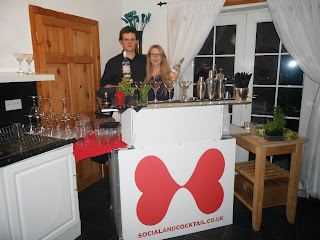Maybe I'm the only person in the world to have thought
this... *embarrassing admission ahead* but I assumed the purpose of a writing
residency was for the writer to go to a specific place to immerse
themselves in that environment; to absorb their
surroundings, then pour said findings into their art.
My personal fantasy had me take a residency in the
attic of some glorious sea view hotel, where I would wander the scenic town,
luxurious corridors and staff areas by day, then scribble by night. I used
to be a chambermaid, you see, and there's definitely a book of hotel-based
scandal somewhere in me.
I digress. Contrary to my preconceived notions,
residencies do not exist as "setting" research for your
creative endeavours. Not exclusively, anyway. The panel of speakers at the
seminar had taken up residencies in a mens prison, a PR company, a bank,
and a sick kids hospital. They weren't there to observe people and take notes.
They were there to engage other people. And that is the whole point.
Elspeth
Murray was once Writer in Residence at Scottish Widows, where she would
hand out "Curious Questions of the Week" cards to employees on their
way in to the office, as she wasn’t afforded more than a snippet of their time.
What was heartening was that more and more of these employees started filing in
the cards. That miniscule gesture made them stop and consider their day,
nay, their life, when otherwise they might have simply succumbed to the
humdrum.
In my opinion, everyone needs to express themselves. It’s integral to being
alive. Properly alive, that is; not just existing. If you don’t express
yourself in some way or another you'll fade away.
Gowan
Calder spoke of her time as Writer in Residence at a medium-high
risk mens prison. I thought to myself 'you've got to have some balls to do
that!'. An actress among other things, Gowan was charming and flamboyant as she discussed
the work she did with the prisoners, and I could just imagine them all warming
to her energy. Full of fun, she told us how they turned the air blue with their
creations, which materialised into (aside from much hilarity) tangible results
such as a production of a play they'd written, called F**k This for a
Game of Soldiers.
Linda Cracknell is
halfway through a two year residency with the Sick Kids Friends
Foundation, working alongside the wonderful illustrator Cate James.
When she spoke of approaching the worried relatives of these poorly kids, asking
them if they wanted to write a story together, I thought to myself: 'good
grief... you'd need even more balls for that!' At first glance, I don't think I'd have the courage to puncture through that bubble of panic and devastation
that is a parent’s concern for their child. That’s because I’m a shitebag and
an introvert, but when I think about it further, I begin to consider the
temporary reprieve this might bring them: that precious distraction from worry,
which is what most families desperately need at times like that.
They also run library workshops for patients and
non-patients alike, and have created fun characters out of medical equipment
and buzzy bee toys to distract and thrill a group of children while they are getting their
weekly arthritis jabs. Amazing.
So what did I learn, apart from how ballsy these ladies
are? I learned that the difference they must make to people's lives
is incomparable, and makes my former perception of residencies seem utterly
selfish. What a riddy!
The plays, the question cards, the storytelling exercises: they are all things that have derived from the blank canvas
of the writers' minds. As speakers Sophie Moxon and Julie Amphlett told us: You can’t give a specific job description for a residency.
And neither
should you. You can’t hem it in and create boundaries and instruction, no
matter how much you crave direction. The purpose of a writing residency is to
create; to explore ways to ignite that spark of humanity in people who
may not necessarily have a creative nature; to give them that infectious
exhilaration from creation that we as writers are well versed in.
It’s not all about the writer utilising these people and places for their own
art. It’s about engaging people in a way that makes them glad you exist and
makes their own existence different for you having been in it.
That's what I took away from the seminar, at least.
What about the writer? What do they get from it all? How does
putting a bit of heart into their life benefit writers in their own creative
endeavours?
Do you really have to ask?
◦

Scottish Book Trust Residencies & Opportunities seminar






































